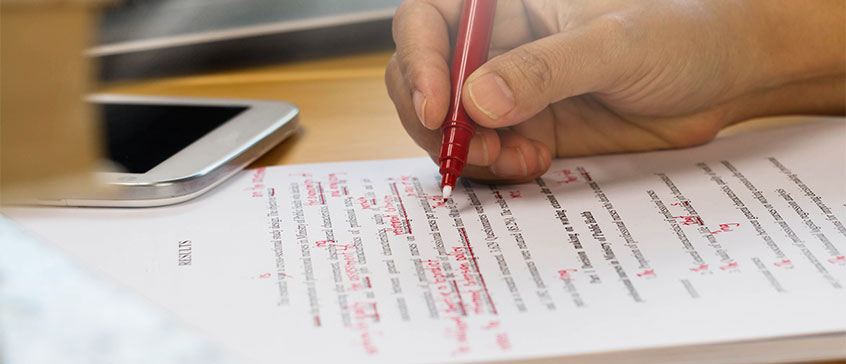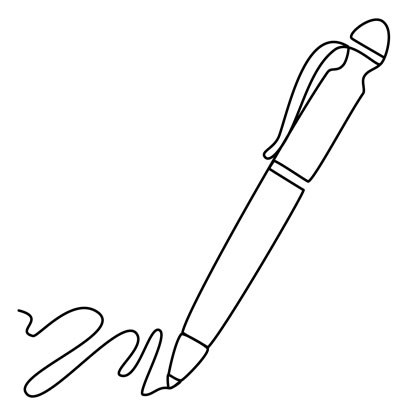Become your own editor

By instructor Darcy Nybo
Editing your own work is not an easy task. You've written it down, think it’s brilliant, or at least passable, and now it's time to edit. It’s difficult to edit your own work for several reasons.
First, it’s your baby. Your writing is a personal form of expression. No matter the subject, the piece is something you created. This makes revising, rewriting, and cutting, very challenging.
Second, you’re too close to the words you’ve written. You crafted the words into sentences, which you then read and reread. It makes sense to you. You understand the topic. You know what you meant to say. It’s hard for you to recognize that others may read it and not understand what you’ve written.
And third, and most important of all, you are human, and humans make mistakes.
 When we try to edit our own work, we see what we believe we wrote. Our eyes play tricks on us. We read right over typos that we normally would catch in other people’s writing.
When we try to edit our own work, we see what we believe we wrote. Our eyes play tricks on us. We read right over typos that we normally would catch in other people’s writing.
Self-editing is difficult, but it’s a necessary skill to have. We usually don’t have a full-time copy editor waiting to review our text. Even those of us who have worked with a full-time editor understand the cleaner copy that leaves our hands means we have more control of the final product. In short, the ability to self-edit is critical to publishing autonomy.
The ability to self-edit also means you can catch some of your bad habits, and ensure they don’t occur in future writings. Do you use the word, that, when it isn’t necessary? Do you repeat the same words several times on a page? Do you begin sentences with gerunds (ing words)? Or do you use the words seemed or suddenly when it’s not necessary? As you develop the ability to edit yourself, you naturally grow as a writer, which means there is less to edit in the long run.
Spell check, word editors, online editors, and other programs are great for helping you find errors in your writing, but even they won’t catch everything.
Statistics vary; however, they all agree that a good edit can give you a manuscript with around 90 to 94% accuracy. Add in a proofreader and your manuscript could be 98% error free. It is almost impossible to catch 100% of your errors, but you can get close!
Be prepared to rewrite and revise throughout your writing process too. Each round of editing requires your full attention. It’s not unheard of to edit your work five to ten times before it is just the way you want it.
A good, clean copy is the key to recognition as a talented writer.

Darcy Nybo is a multiple award-winning author, a well-known freelance journalist throughout BC, and a sought after editor, team book publisher and writing instructor. Darcy combines her natural ability as an instructor with humour and her writing knowledge.
Darcy is teaching the upcoming course on Editing Your Words. Editing your own work can be difficult. In this course you’ll go through the five major types of editing which includes: content/developmental editing, structural editing, copy editing, line editing and finally, proofreading. Bring a completed chapter or story to class to work on.
View course details
- Posted July 11, 2022
RELATED TOPICS: Writing and Literature
Visit Registration
2nd Floor | Continuing Studies Building University of Victoria Campus 3800 Finnerty Road | Victoria BC | CanadaTel 250-472-4747 | Email uvcsreg@uvic.ca
2026 © Continuing Studies at UVic
Legal Notices |
Sitemap

